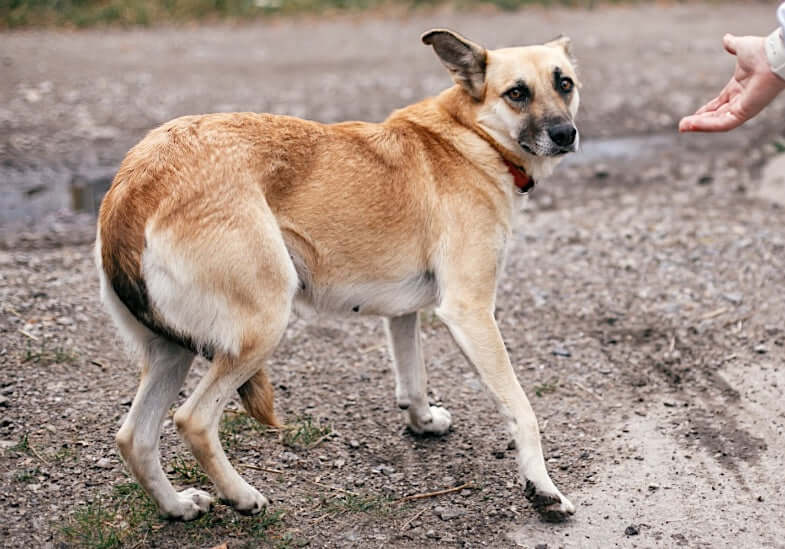Ginger is widely known for the many health benefits it has. And as a pet parent, you might have wondered if your dog can enjoy these benefits too. And the answer is they absolutely can. Dogs can definitely eat ginger, and apart from enjoying its flavor, they will receive many benefits for their overall well-being and health.
Is ginger safe for dogs?
As with any human food not specifically made for dogs, ginger is safe for dogs when given in moderation.
Ginger is not only safe for dogs, but it’s also extremely beneficial for them. Let’s go through the many benefits ginger has for dogs.
1. Prevents nausea
Ginger is known for its stomach aid benefits on humans, and to your surprise, it can do the same for your dog. Ginger can relieve gastrointestinal pain on your dog and is great at helping them prevent nausea.
The two most common reasons why dogs experience nausea is due to car motion sickness and chemotherapy. And ginger can help ease both of them.
When dogs go through a cancer treatment, they experience nausea due to the chemotherapy. After consulting it with their vet, you can provide your dog with ginger to help them ease the symptoms.
A study showed that ginger helped reduce vomiting on dogs receiving the chemotherapeutic agent called Cisplatin, in comparison to dogs who weren’t taking this root vegetable.
Many dogs also experience nausea and vomiting on long car rides. The best way of helping your pup face car motion sickness is to give them calming treats half an hour before the trip. But ginger is also a great supplement as it can definitely help ease the symptoms.
A study proved that ginger can have the same benefits on dogs as Dramamine, a motion sickness medicine has for humans.
Ginger can also help address other gastrointestinal issues on dogs such as canine bloating, which can progress to gastric dilatation-volvulus (GDV). Ginger can also decrease gasses.
2. Anti-inflammatory
Ginger acts as an excellent anti-inflammatory, so it can help ease arthritis and osteoarthritis symptoms in dogs. This means, ginger helps dogs deal with joint and hip pain. Although there are specific effective joint supplements for dogs, you can also give your pooch an extra boost with ginger.
3. Antioxidant
Ginger is loaded with antioxidants that are crucial for dogs’ health. They boost immune cell function, provide cognitive support, improve memory, prevent cell damage and slow down the aging process of cellular molecules.
4. Heart health
Gingerol is the chemical compound found in ginger that can break up blood clots in dogs, which results in lowered high blood pressure and improved circulation.
What is more, a study showed that ginger can help treat heartworm disease in dogs.
How to give ginger to your dog?
Now that we know all the health benefits ginger can have for your dog, let’s talk about dosages and ginger forms.
When it comes to powdered ginger, small dogs shouldn't eat more than ¼ of a teaspoon and big ones, no more than ¾.
If you are giving them fresh root ginger, pieces shouldn’t be too big either. ¼ teaspoon will work just fine for tiny dogs, ½ for medium ones and ¾ for the big pups.
But, what other ginger forms can dogs eat? Tablets, liquid tincture and capsules.
And, what forms of ginger should dogs avoid? Pickled, human ginger biscuits, gingerbread and ginger cake.
At the end of the day, the best way to give ginger to your dog is the one they like the most. If you notice they are not a fan of the flavor, but you still want them to experience its benefits, you can make homemade ginger treats for your dogs.

Side effects of ginger for dogs
Although ginger is extremely beneficial for dogs, it can also have some side effects, as many foods have.
-
Allergies: if you have never given ginger to your dog, you should start with a small piece to see if they are allergic to it. If that’s the case, ginger will not be a healthy snack for your dog. What is more, allergic reactions can also happen upon skin contact.
- Upset stomach: although ginger can help treat stomach pain, it can also cause an upset stomach for some dogs due to its spicy taste. In order to avoid this, you should start feeding ginger to your dog in very small quantities and check if there are any side effects.
- If your dog has a bleeding disorder, is on medication that increases the risk of bleeding, is pregnant, has diabetes or suffers from a heart disease, you shouldn’t give them ginger.





